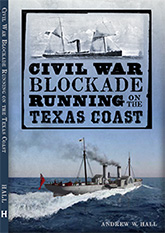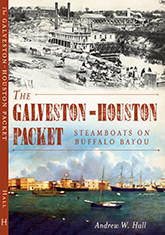Not Surprising
Over at Civil War Emancipation, Donald R. Shaffer highlights a table by David C. Hanson of Virginia Western Community College, that compares slaveholding states’ date of secession with their populations of slaves and slaveholders as recorded in the 1860 U.S. Census. Shaffer notes that “David C. Hanson makes a definite connection between the concentration of slaves and slaveholders in a particular southern states and when it seceded from the Union in 1860-61, and whether it seceded at all. Certainly, there is plenty of anecdotal evidence connecting slavery and Civil War causation, but this table also makes a compelling statistical case.”
No shit. It turns out that for the eleven states that actually seceded, the proportion of free persons owning slaves was an excellent predictor of the order in which they seceded, beginning with South Carolina. I plugged the numbers into Excel and found that the percentage of slaves as part of the state’s overall population was equally reliable as a predictor. Assigning each state a number corresponding to its order of secession (South Carolina = 1, Mississippi = 2, etc.), the correlation coefficient for both the percentage of slaveholders among the free population, and for the proportion of slave among the overall population, was in both cases beyond -0.9. In short, each percentage is a nearly perfect predictor of where each state falls in the order of secession. The states with the largest proportions of slaves and slave-holders seceded earliest.
_____________







What was the white population of the Confederacy prior to Fort Sumter and Lincoln’s call for troops to invade the South?…..2.5 million
After?…..5.5 million. And many of those in the original seven states who were against secession became very resolute Confederates.
It’s true that the outbreak of hostilities in Charleston and Lincoln’s subsequent call for volunteers helped pushed the last four states over the edge into secession — Virginia, Arkansas, North Carolina and Tennessee — but I think the implication notion that they would never have otherwise seceded without that action by the North is pretty tenuous. While the call for Union volunteers played a part, as Robert Moore points out the Confederacy was already actively gearing up for a fight, with Virginia calling for troops before Lincoln’s action. They were spoiling for a fight, and I don’t think anything other than complete and utter capitulation by the Lincoln administration would have sufficed — and maybe not even that.
[Edited for clarity]
Also, you have to think about the political situation of a state like, say, Virginia if she stayed in the Union. Let us assume for this hypothetical that war was averted and the split was fairly amicable. The original 7 states go there way as the CSA. The others remain in the Union. Think about what that does to the balance of power! The primary worry that drove secession was that slavery would be curtailed and then eventually abolished. Well, if that’s the worry, states like VA, NC, TN, KY, MO… bereft of their political allies in SC, GA, AL, MS, TX, FL… they’re screwed.
Not to mention what would happen the next time there is a flare-up in Missouri, Kansas or one of the other territories.
I think they were goin’ one way or the other.
Two things jump out to me from that chart.
1) The astonishing high percentage of humans that were slaves –over 40% in 7 states.
2) How never more than 9% of whites owned slaves.
Interesting stats, but vastly more relevant number is the percent of movers and shakers who were slave owners. What percentage of those in power got their power, prestige, and passion from owning slaves?
SS guards at Nazi death camps were just .00003% of the population, yet without those guards you don’t have death camps. (I realize it isn’t exactly comparable)
So it’s not just raw percentage of population –its what percentage of those who ran things, who decided things, got their PPP (power prestige and passion) from slavery?
One guy might have title to the slave, but his entire family are getting their wealth and status from that. The slaves were not distributed — usually one guy, I assume, owned himself a passel of slaves. But his family, his cousins, his preacher, his brother in law, his newspaper editor, a huge circle around him, were essentially getting their PPP from owning slaves too.
For example, Jeff Davis owned some 200 slaves. But they didn’t count his wife Varina as a slave owner, nor his children as slave owners. Nor did they count the people who rented slaves, as owners.
Lee regularly rented out slaves, he was renting them out DURING the Civil War. Renting out slaves was very much a source of revenue for Lee and others. Also a way to punish slaves, according to Elizabeth Pryor, who writes that Lee would send his slaves that displeased him , deliberately, to those slave renters who were known for harsh treatment.
Whipping wasn’t the only discipline — hanging over every slave’s head was more than a whip, it was the very real and common practice of sending them or their child or a loved one to some brute down the way.
No one could do the math, but I’d wager 90-100% of the people in power who were pushing for secession, were either slave owners outright, or de facto slave owners, who got their status and power from some aspect of the slave horror.
YOu can also tell from t his list the high concentrations of slaves. In some areas, slaves outnumbered whites 2-1. Unreported, or under reported, in any history book I see, is the degree of terror and fear felt by whites regarding the drastic growth of the slave population
The governor of Florida wrote in his own “Declaration of Causes” that “just stopping the spread of slavery is like burning us to death slowly”. Can you imagine? BURNING US TO DEATH by stopping the spread of slavery?
What is nearly completely lost is the drastic fear that was in the South because, ironically, of the exploding number of slaves. That same governor of Florida said the “rapid increase” in the slave population was PROOF of God’s favor and how well they were treating their stock! But he was really upset that they couldnt spread their over abundance of slaves to the territories.
The governor of Georgia wrote any notion of ever freeing the slaves would mean they, the whites, would have to kill their slaves! With their own hands! And they loved their slaves, they weren’t going to kill them all, so, secession and ware were the way to go.
The best way to understand the South, and the motivation of feelings of those in power, is just to read what they said. Read the Southern papers Southern books, Southern documents. Not what some PhD says about it 150 years later. Heck, they were screaming this stuff from the roof tops. They were emphatic, repetitive, and clear.
No one has bothered to write, yet, a stark, blunt, and in IMHO, valid account of the fear in the South regarding the explosion of black population there. It was NOT just greed that was propelling folks to want to spread slavery into the territories — or promise war if they could not. It was FEAR of the consequences of the unrelenting explosion of the black population.
They had a tiger by the tail – the black population growth was the tiger. All the breeding farms for slaves, the forcing of women to bear 10-12-15 children so masser could sell them or work them or rent them out, was going to bite them.
This is what they said – THEMSELVES. This is why Lincoln again and again said to just confine slavery to where it is, would end it. Because slavery was very much llike a cancer, the rapid increase is slaves was astonishing. This was not a controlled economy! Instead of demanding FEW slave babies from their breeding stock, these guys demanded more, to make up for the lowering value.
It was a vicious circle, and it ended up in a vicious war.
All this was no secret then, it just became a secret as time went on.
No more Nazi analogies. They’re facile and lazy.
It’s true that a small percentage of individuals were slaveholders of record — i.e., holding legal title, usually the head of the household. I find it more useful to look at the households who owned slaves, as a better indicator of the pervasiveness of the institution. That figure wasn’t measured directly by the 1860 census, but it can be reasonably inferred based on the census data, given that a very small proportion of households recorded more than one slaveholder. In the eleven states that formed the Confederacy, there were in aggregate just over 1 million free households, which between them represented 316,632 slaveholders—meaning that just under one-third of households in the Confederate States counted among its assets at least one human being.
Maybe it is a lazy analogy, the point it, the South was controlled by totalitarians, whose main goal in life was to spread slavery. Only 9% of the population were slave owners, but that 9% was the arrow head, on the arrow.
Don’t believe me? Hilton Helper was there. He said this — he said if there were real elections in the South (there wasnt) and real free speech in the South (there wasn’t that either) the slave owning class would have been kicked out long ago.
The arrow head kept it’s position by stopping free speech, and not allowing real elections. By stopping preachers from preaching what they wanted, that was a big help too.
I wasn’t there, he was, and that is what he said. Not about the arrow.
You could use any violent totalitarian group as a metphor for Southern leaders — radical Islam is probably the most apt. Fantantical insistance on government control –insistance that God ordained and blessed and directed their actions. Very similiar.
Slavery is governent control– not just of the slaves themselves — that is actually the SMALL part. The real effective government control had to come — as it did — in controlling the objections to slavery. Ships were searched, mail was restricted, and laws were enacted that forbad any “incendiary” language or writing that “could make a slave dissatisfied”
Southern leaders didn’t pull this totalitarian oppression because they wanted to — they had to. You either did it that way, or slavery ends. Slavery can’t exist if you allow people to preach against it, write books against it, campaign against it, run candidates against it. Say bad things about it. Doesn’t work. Either slavery went bye bye – or free speech, free religion, went bye bye. Guess which one went?
Even preachers could be — and were — arrested for preaching against slavery. One preacher was arrested for owning the wrong book. If you don’t want to call that Nazi, fine with me. Pick your own looney violent control freak group.
Today, it is just politically incorrect to point this out, for some strange reason. We have to pretend people in the South were allowed to speak, write, read books against slavery. You can only believe this if you just have no clue of what was going on in the South.
For example there was a Southern Congressmen, on the floor of the House of Representitives who wanted to SPREAD this violent oppression of free speech to the North. He demanded that the Northern states arrest those who wrote books or pamphlets against slavery – and send those criminals to the South for punishment! Of course you couldn’t write such things in the South. Preachers were arrested just for OWNING such a book. But this guy wanted EVERYONE to shut up about
THis Congressmen wasn’t a drunk at alocal bar. He was a US Congressmen, speaking on the floor of Congress.
So if you think the South wasn’t run by religious fanatics, extremists, and totalitarians — think again. Learn some real history. Not this mamby pamby stuff we were taught in gradeschool about an honroable group of men, just interested in states rights.
Either get real about this, or quit pretending you know or care about history
I have no idea what blog you’re describing, because it’s sure not this one.
I appreciate your passion about this subject, and I suspect we mostly agree on the big issues. But I’ve written on the silencing of dissent in the Confederacy. I’ve written about Robert E. Lee and his interaction with slavery. I’ve written about Confederates citing the Bible as a justification for slavery. I’ve written about ways of recognizing the horrors slavery. I don’t need to write about these things in every post, over and over again.
I don’t know where you get the idea that I’ve failed to “get real about this,” but it’s certainly not from reading this blog.
Mark, when you write, “No one could do the math, but I’d wager 90-100% of the people in power who were pushing for secession, were either slave owners outright, or de facto slave owners, who got their status and power from some aspect of the slave horror.” your numbers aren’t too far off.
I’ve only looked into my own state, TX, but according to the Texas State History website about the secession convention, “Delegates to the convention were in some ways a typical cross section of the free male population of the state. Their average age was about forty, and almost all had been born in slaveholding states. Though they were slightly wealthier than the average Texan, the great planters and merchants of the state did not dominate the convention. In two significant ways, however, the convention differed from the population as a whole. Lawyers made up 40 percent of the membership and slaveowners about 70 percent, although most owned fewer than fifty slaves.” (https://tshaonline.org/handbook/online/articles/mjs01)
Hope that helps!